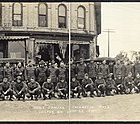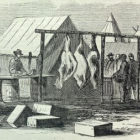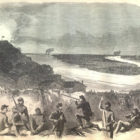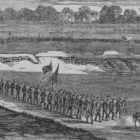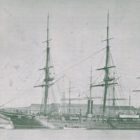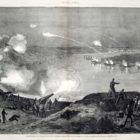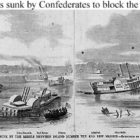The enemy made no more general assaults upon the works until June 14th, but in the meantime were approaching by parallels and planting batteries of heavy siege and naval guns. A steady fire was kept up day and night both by the fleet and the land batteries. There were about eighty siege pieces in these latter. An eight-inch howitzer so planted as to enfilade a portion of the southern line of defences, caused much amusement as well as annoyance to the Confederates.
Siege and surrender of port Hudsonthe investment-SKIRMISHING-THE FIRST GRAND ASSAULT
ASSAILED AND ASSAILANTS-DOUBLY ARMED-LIEUT.
PRATT AT BATTERY II-THE ESSEX DRIVEN OFF-
LIEUT. ADAMS ELECTED-ARTILLERY PRACTICE-AS SAULT OF JUNE I4TH-EFFECT OF BUCK AND BALL-
BANKS INHUMANITY-LEAD FOR WATER-A GALLANT
CORPORAL-BATTERY I I SILENCED-GALLANT SCHUR-
MURS DEATH-THE SUNKEN BATTERY-MULE AND
PEAS-THE FALL OF VICKSBURG-UNCONDITIONAL
SURRENDER-GEN. GARDNERS SWORD-CASUALTIES
OF THE FIRST.
Continue reading
